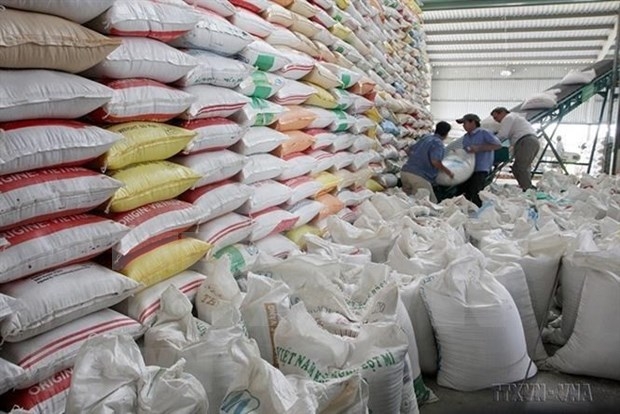Conference seeks ways to step up food exports to African market
A Vietnam-Africa online trade exchange conference was held on June 14 by the Vietnam Trade Promotion Agency (Vietrade) under the Ministry of Industry and Trade in collaboration with Vietnam Trade Offices in African countries.

According to Vietrade Vice Director Nguyen Thi Thu Thuy, African countries' demand for food, especially rice, is high and diverse. She underlined Vietnam’s opportunities to provide many food products to the nearly 1.4-million-strong market.
Statistics showed that in the first five months of 2022, Vietnam shipped US$2.38 million worth of the product to Algeria. Rice was the major export product of Vietnam to Africa, which accounted for 20% of total export revenue generated from the market, which is also a promised land for Vietnamese coffee and peppercorn.
Each year, African countries spend about US$750 million on importing coffee, said Thuy, noting that Vietnam has been one of the five major suppliers of the product in Africa.
Hoang Duc Nhuan, Vietnamese Trade Councilor in Algeria, said that Vietnamese coffee is accounting for 50% of market share in the country. However, Vietnam is facing fierce competition from China, Thailand, India, Pakistan and other countries that have signed free trade agreements with Algeria. The situation is similar in other markets in the African region, he said.
Nhuan held that high logistics costs are a big problem for Vietnam, along with differences in consumers’ habits and quality standards.
Tran Hung Cuong from the Vietnamese Trade Office in Nigeria said that in the first five months of this year, Vietnam earned US$62.94 million from the Nigerian market, up 10.3% year on year. However, the value of food exports in the market has remained modest, he noted.
Experts at the event reminded Vietnamese exporters to pay greater attention to transport and preservation stages when exporting goods to Africa.
They advised Vietnamese firms to carefully study the market as well as legal regulations in each country and information of its partners to avoid risks, while choosing safe payment methods.
At the same time, they underlined the need for exporters to ensure that their products meet particular requirements in each market.
